Posted on April 24, 2015 by The Orwell Prize -
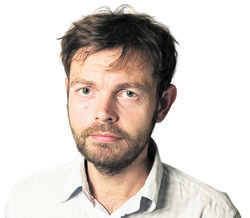
The entry exposes the policy of entrusting the care of some of the most vulnerable people in society to unaccountable firms who have an interest in covering up mistreatment.
The video component was embedded in the online versions of the entry that appeared in The Observer on 18 May 2014. Two linked articles appeared in that newspaper edition, a detailed investigation that is the submitted entry and a front page article setting out the concerns.
Journalistic Writing
Serco and a search for the truth – 5/17/2014, The Observer newspaper and the Guardian online
Video
‘They are treating us like animals’ – 5/17/2014, Guardian online
Posted on April 24, 2015 by The Orwell Prize -
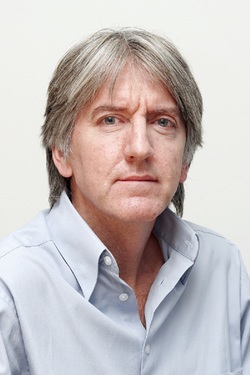
Steve Connor is the Science Editor of The Independent and i. He has won many awards for his journalism, including five-times winner of the prestigious British science writers’ award; the David Perlman Award of the American Geophysical Union; four times highly commended as specialist journalist of the year in the UK Press Awards; UK health journalist of the year and a special merit award of the European School of Oncology for his investigations into the tobacco industry. Taken from The Independent
Journalistic Writing
The Lost Girls – 1/15/2014, The Independent
Audio
I had to terminate my pregnancies…. – 3/15/2014, The Independent
Posted on April 24, 2015 by The Orwell Prize -

At the age of 14, Karl appeared on the front page of The Daily Mail as the leader of the MAD gang in Brixton pointing an automatic weapon at the camera. He was the leader of one of the most violent and feared gangs in London. He was involved in serious knife and gun crime. He was witness to several murders. Quite literally, he carries the scars. On the day the first interview of the piece was supposed to happen, Edward Docx received the following text: “A very close friend of mine was stabbed severely in the chest yesterday and passed away an hour ago. I’m in the hospital now and won’t be able to meet with you.” Understandably, at this point, Karl stopped taking calls and responding to all communications. When, finally, the connection was re-established, Karl remained reluctant and afraid of both the police and current gang members. The process of building trust was fragile and had to be conducted slowly, patiently and sensitively. The idea for the piece was simple: to render Karl’s world through Karl’s eyes. By approaching the piece in this way, Docx hoped to portray the subject as resonantly as possible without sacrificing the detail and intimacy which the rhetoric around gang-culture so often swamps. From a stylistic point of view, Docx hoped to relay the intensity of Karl’s experience by using the semi-formal idea of a dialogue – but one that took place in the locations of the events described, including the recent murders. In this way, he hoped the emergent story might be clearer and the subject drained of distortions. In the background were two further ideas: first, to tell the story of a demographic that is very seldom told; and second, to capture a slice of life in the capital of Britain in 2014 three miles down the road from the Houses of Parliament. The piece seeks to ask questions and to illuminate. It reports on tragedy but also on redemption. It is a personal story, but it reveals and re-presents a part of our culture. In the best tradition of British journalism, it bears intelligent witness. Most of all, it deserves as wide an audience as possible. To this end – Prospect Magazine worked with Docx to promote the piece across as many social media platforms as possible and it was widely circulated, even reaching the west coast of America via British actress, Thandie Newton, who came came across it and championed it on Twitter. The author would also like to acknowledge that the social media side of publication was run in conjunction with the digital team at Prospect Magazine.
Journalistic Writing
Social Media
@prospect_uk https://twitter.com/search?q=Walking%20with%20karl%20prospect&src=typd&lang=en-gb Link to social media content
Posted on March 25, 2015 by The Orwell Prize -

James Meek is a writer and journalist, the author of five novels, most recently The Heart Broke In, and two books of short stories, as well as Private Island, a collection of essays about privatisation. His novel The People’s Act of Love won the Ondaatje Prize and was nominated for the Booker Prize. Meek was named Foreign Correspondent of the Year in 2004 in Britain’s Press Awards for his reporting on Iraq and Guantanamo Bay. He worked for the Guardian from 1994 to 2006. He is a contributing editor to the London Review of Books. Taken from The Guardian
Articles submitted
Posted on March 25, 2015 by The Orwell Prize -

Clare Sambrook is a novelist, freelance journalist and a founder of the citizens’ campaign
End Child Detention Now. Clare is a coeditor of OurKingdom, the UK section of OpenDemocracy where she runs the Shine A Light project. In 2010 she won both the Paul Foot Award and the Bevins Prize for outstanding investigative journalism. Taken from claresambrook.com
Articles submitted
The racist texts: What the Mubenga trial jury was not told – Open Democracy, 17/12/2014 Fail and prosper: how privatisation really works – Open Democracy, 06/03/2014 Nice work: G4S wins $118 million Guantánamo contract – Open Democracy, 12/08/2014 Gove’s own Operation Trojan Horse: the privatisation of our schools – Open Democracy, 16/07/2014 Man, 84, dies handcuffed in hospital: UK border control by the GEO Group – Open Democracy, 16/01/2014 One Man, Two Guvnors: the conflict at the heart of British justice – Open Democracy, 09/07/2014
Posted on March 25, 2015 by The Orwell Prize -

Suzanne Moore is a columnist for The Guardian. She has written for The Mail on Sunday, The Daily Mail, The Independent, and the New Statesman over the course of her career. She stood as an independent parliamentary candidate in the 2010 general election.
Articles submitted
In the tawdry benefits debate, no politician speaks of moral obligations – so I will – The Guardian, 05/02/2014 My old council flat sold for half a million – this madness can’t end well – The Guardian, 02/04/2014 This politics of denial over immigration is feeding a growing inhumanity – The Guardian, 20/10/2014 Jeremy Clarkson and Ukip are not mavericks, but the bullying face of the establishment – The Guardian, 07/05/2014 Poor children are seen as worthless, as Rotherham’s abuse scandal shows – The Guardian, 27/08/2014 The Scottish independence debate has given politicians what they say they want – engagement – The Guardian, 10/09/2014
Posted on March 25, 2015 by The Orwell Prize -

Peter Ross is a journalist based in Glasgow and the author of Daunderlust – Dispatches From Unreported Scotland, which was published in 2014. He writes for The Guardian and Scotland on Sunday.
Articles submitted
- From canny scepticism to our chance to dream – Scotland on Sunday, 24/08/2014
- Two to tango or last waltz – Scotland on Sunday, 31/08/2014
- It Could Be Us – Scotland on Sunday, 07/09/2014
- Growing pains – Scotland on Sunday, 14/09/2014 Tears and loathing – Scotland on Sunday, 21/09/2014
Posted on March 25, 2015 by The Orwell Prize -

Mary Riddell is a columnist and political interviewer for the Daily Telegraph. She studied modern languages at Nottingham University and began her journalistic career in Lincolnshire, Oxford and Aberdeen before moving to London. Her previous jobs include women’s editor and assistant editor of the Daily Mirror and deputy editor of Today. Taken from telegraph.co.uk
Articles submitted
Posted on March 25, 2015 by The Orwell Prize -

Rebecca’s work has been published by the Dominion of New York, the Guardian, the New Statesman, the Washington Post, the New Internationalist, the Independent, and Kvinfo. She is a Winston Churchill Travel Fellow, and spent her fellowship reporting on immigration and asylum in Greece, Italy, Spain, France and the UK. Rebecca is writer in residence at Lacuna, a new human rights magazine. She has also worked as an editorial assistant and special correspondent in the Washington Post’s London office, and as a business journalist writing and reporting on private finance initiatives for the Partnerships Bulletin magazine. Taken from Rebecca Omonira-Oyekanmi
Articles submitted
- Refugee women in the UK: fighting back from behind bars – People on the Move, Open Democracy, 24/02/2014
- Rats in the lunchbox, mould in the mattress: living in squalor in London – Our Kingdom, Open Democracy, 14/05/2014
- Down the Rabbit Hole: single parenthood in austerity Britain – Lacuna, 23/05/2014
- How to build a law centre – Lacuna, 18/07/2014
- Black and Dangerous – Our Kingdom, Open Democracy, 30/09/2014
- Politicians like Calais’ mayor should stop telling tales – New Statesman, 30/10/2014
Posted on March 25, 2015 by The Orwell Prize -

Kim Sengupta is the Defence and Diplomatic Correspondent for The Independent. He covers international and domestic news and his extensive reporting from around the world has included many of the major conflicts in recent times.
Articles submitted
Tortured Ukrainian’s widow mourns as Russia vows to defend its interests – The Independent, 24/04/2014 ‘A maelstrom of bombs, missiles and chaos’ – The Independent, 15/08/2014 Gunfire, paranoia and football on the base that plays host to two armies – The Independent, 05/03/2014 The Odessa file: how a cultural melting pot boiled over into sectarian strife – The Independent, 08/05/2014 Ukraine: the storm breaks – The Independent, 10/05/2014 Four months after the bombardment, Gaza’s wounds are yet to heal – The Independent, 22/12/2014
Posted on March 25, 2015 by The Orwell Prize -

When Rana Dasgupta arrived in Delhi at the turn of the twenty-first century, he had no intention of staying for long, but the city beguiled him – he ‘fell in love and in hate with it’ – and fifteen years later, Delhi is still his home. Over these fifteen years, he has watched as the tumult of destruction and creation which accompanies India’s economic boom transformed the face of the city. In Capital, he explores the life-changing consequences for Delhi’s people, meeting with billionaires and bureaucrats, drug dealers and metal traders, slum dwellers and psychoanalysts. These encounters, interwoven with over a century of history, plunge us into Delhi’s intoxicating, sometimes terrifying, story of capitalist transformation – one that has repercussions not only for India, but for everybody’s future. Taken from Canongate
Posted on March 25, 2015 by The Orwell Prize -

The UK Independence Party (UKIP) is the most significant new party in British politics for a generation. In recent years UKIP and their charismatic leader Nigel Farage have captivated British politics, media and voters. Yet both the party and the roots of its support remain poorly understood. Where has this political revolt come from? Who is supporting them, and why? How are UKIP attempting to win over voters? And how far can their insurgency against the main parties go? Drawing on a wealth of new data – from surveys of UKIP voters to extensive interviews with party insiders – in this book prominent political scientists Robert Ford and Matthew Goodwin put UKIP’s revolt under the microscope and show how many conventional wisdoms about the party and the radical right are wrong. Along the way they provide unprecedented insight into this new revolt, and deliver some crucial messages for those with an interest in the state of British politics, the radical right in Europe and political behaviour more generally. Taken from Routledge
Posted on March 25, 2015 by The Orwell Prize -

David Pilling is the Asia editor of the Financial Times. He was previously Tokyo Bureau Chief for the FT from January 2002 to August 2008. His column ranges over business, investment, politics and economics. He joined the FT in 1990. He has worked in London as an editor, in Chile and Argentina as a correspondent and covered the global pharmaceutical and biotechnology industry. Taken from FT.com
Articles Submitted
Bigger, richer, better? How GDP has become a global obsession (£) – Financial Times, 05/07/2014 Japan’s old age story (£) – Financial Times, 18/01/2014 Ten days that shook Hong Kong (£) – Financial Times, 11/10/2014 Did you hear the one about the generals? (£) – Financial Times, 04/10/2014
Posted on March 25, 2015 by The Orwell Prize -
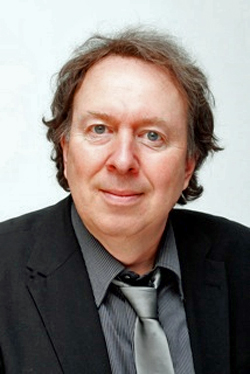
Established as one of the most influential political commentators in the country, Steve Richards became The Independent’s chief political commentator in 2000 having been political editor of the New Statesman. He presents Radio 4’s Week in Westminster. Taken from The Independent
Articles submitted
Our Political Landscape – The Independent, 24/11/2014 Tony Blair Cannot Say Iraq Was A Mistake – The Independent, 16/06/2014 Hysteria, Vilification, A Spurious Victim – The Independent, 21/11/2014 The Real Reason Cameron Struggles To Be A Winner – The Independent, 15/12/2014 Could The Real Theresa May Stand Up? – The Independent, 21/12/2014 Our Public Services Are In Decline – Can We Change Track? – The Independent, 30/12/2014
Posted on March 25, 2015 by The Orwell Prize -

At first, it seemed like a small story. The royal editor of the News of the World was caught listening to the voicemail messages of staff at Buckingham Palace. In 2007 he and a private investigator were sentenced to prison and the case was closed. But Nick Davies felt sure there was more to it and began his painstaking investigation which ultimately exposed a world of crime and cover-up, of fear and favour – reaching all the way to the top. This book is the definitive, inside story of one of the major scandals of our age. Drawing on exclusive interviews with private investigators, journalists, politicians, police officers and Murdoch executives, it blows the lid off Fleet Street, Scotland Yard – and Downing Street. It tells for the first time how Davies and a network of rebel lawyers, MPs and celebrities took on Rupert Murdoch, one of the most powerful men in the world. It takes us into the newsroom of the News of the World and exposes the bullying and law-breaking that went on there, and into the underworld of the private investigators who hacked phones, listened to live calls and bribed the police. It discloses how News International attempted to protect itself with lies and money; how the press regulator floundered; and the history of failure and official secrecy inside police ranks. Above all, this book paints an intimate portrait of the power elite which gave Murdoch privileged access to government, and allowed him and his people to intimidate anyone who stood up to them. Hack Attack is a nail-biting account of an investigative journalist’s quest, and is a shining example of the might of good journalism. It tells the story of what happened when truth caught up with power. Taken from Random House
Posted on March 25, 2015 by The Orwell Prize -
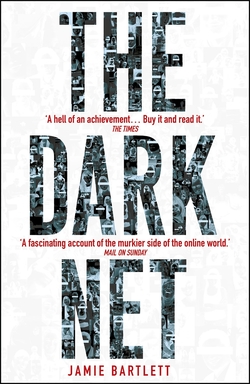
Beyond the familiar online world that most of us inhabit – a world of Google, Hotmail, Facebook and Amazon – lies a vast and often hidden network of sites, communities and cultures where freedom is pushed to its limits, and where people can be anyone, or do anything, they want. A world that is as creative and complex as it is dangerous and disturbing. A world that is much closer than you think. The dark net is an underworld that stretches from popular social media sites to the most secretive corners of the encrypted web. It is a world that frequently appears in newspaper headlines, but one that is little understood, and rarely explored. The Dark Net is a revelatory examination of the internet today, and of its most innovative and dangerous subcultures: trolls and pornographers, drug dealers and hackers, political extremists and computer scientists, Bitcoin programmers and self-harmers, libertarians and vigilantes. Based on extensive first-hand experience, exclusive interviews and shocking documentary evidence, The Dark Net offers a startling glimpse of human nature under the conditions of freedom and anonymity, and shines a light on an enigmatic and ever-changing world. Taken from Random House
Posted on March 25, 2015 by The Orwell Prize -
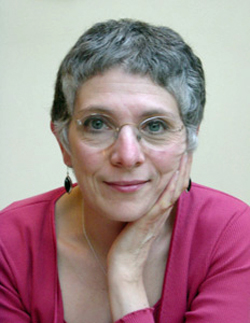
Melanie Phillips is a British journalist, broadcaster and author. Her weekly column, which is currently appearing in The Times, has appeared over the years in The Guardian, Observer, Sunday Times and Daily Mail. She has a weekly radio show on Voice of Israel, is a regular panellist on BBC Radio’s The Moral Maze and appears frequently on BBC TV’s signature political shows Question Time and The Daily Politics. She also writes regularly for the Jewish Chronicle and the Jerusalem Post. Her best-selling book Londonistan was published in 2006. She followed this in 2010 with The World Turned Upside Down: the Global Battle over God, Truth and Power. Guardian Angel, her most recent book, was published in 2013. Taken from melaniephillips.com
Articles Submitted
The peace process can’t deliver true justice (£) – The Times, 05/05/2014 UKIP isn’t a protest, it’s a counter-revolution (£) – The Times, 26/05/2014 Forget ISIS. Iran remains our deadliest foe (£) – The Times, 23/06/2014 Keep the censor away from lessons of history (£) – The Times, 30/06/2014 Israel abandoned – The Spectator, 19/07/2014 The murder of Christians is our guilty secret (£) – The Times, 17/11/2014
Posted on March 25, 2015 by The Orwell Prize -

Ian Birrell is a contributing editor of The Mail on Sunday, though he writes columns regularly in several other papers, including The Guardian and The Economist. He was a speech-writer for David Cameron before the 2010 general election, and co-founded Africa Express, an organisation promoting African music.
Submitted articles
Graveyard of desecration – The Mail on Sunday, 20/07/2014 Please, let American jets bomb my prison… – The Mail on Sunday, 17/08/2014 Our medical advances have outstripped our humanity – The Guardian, 08/08/2014 Bill Gates preaches the aid gospel but is he a hypocrite? – The Guardian, 06/01/2014 Britain’s refusal to save migrants is an act of inhumanity – The Guardian, 29/10/2014 Bonfire of the ebola victims – The Mail on Sunday, 28/09/2014

















